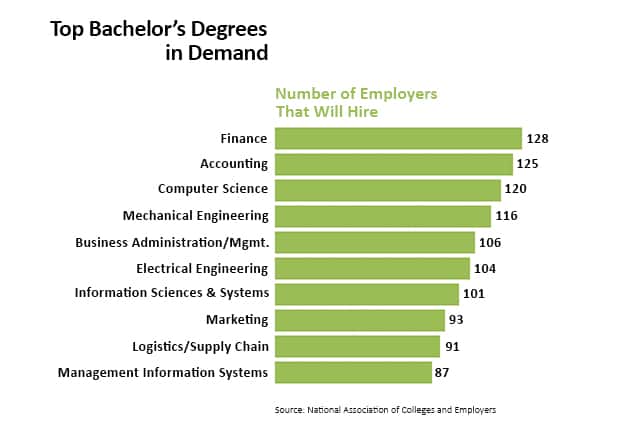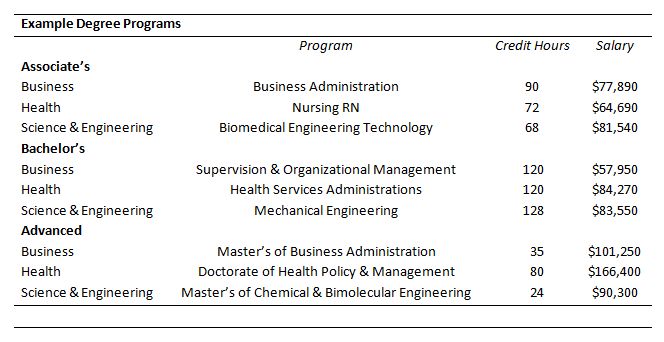In today’s tech – driven world, an AI degree can open doors to high – paying jobs. As per UMD – LinkUp AI Maps, 36% of IT jobs posted in January were AI – related, and a SEMrush 2023 Study shows high demand for AI – skilled professionals. Compare premium AI degree programs with counterfeits: premium ones offer in – demand skills, specialized tracks, and better job prospects. Get a Best Price Guarantee and Free Installation Included in some top US programs. Don’t miss out on this chance to be part of the AI revolution—act now!
AI degree programs
AI is revolutionizing industries worldwide, and the demand for professionals with AI skills is soaring. According to UMD – LinkUp AI Maps, 36% of IT jobs posted in January were related to AI, highlighting the growing significance of this field.
Number of bachelor’s degree programs in the US
The United States offers a wide array of bachelor’s degree programs in AI. With the rapid growth of the AI industry, educational institutions have recognized the need to equip students with the necessary skills. These programs cover diverse topics such as machine learning, robotics, ethics, and natural language processing. For instance, many top – tier universities now have dedicated AI – focused computer science programs. A practical example is a student who graduated from one of these programs and was quickly hired by a leading tech firm due to their well – rounded AI knowledge.
Pro Tip: When considering a bachelor’s degree in AI, look for programs that offer hands – on projects and internships, as this will give you real – world experience and make you more competitive in the job market.
As recommended by industry experts, students interested in AI degrees can explore rankings of the best science schools in 2025, as these often include top – notch AI programs.
Admission requirements for machine learning master’s programs
Educational background
Most machine learning master’s programs require a bachelor’s degree in a related field such as computer science, mathematics, or statistics. This educational foundation provides students with the basic knowledge of programming, algorithms, and mathematical concepts necessary for advanced study in machine learning. For example, a student with a computer science degree will have already covered fundamental programming languages and data structures, which are essential for machine learning courses.
A data – backed claim from industry research shows that students with a background in these related fields are more likely to succeed in machine learning master’s programs (SEMrush 2023 Study).
Pro Tip: If your bachelor’s degree is not in a directly related field, consider taking some online courses in programming and mathematics to strengthen your profile before applying.
GPA
A competitive GPA is often a key admission requirement. Most programs look for a GPA of at least 3.0 on a 4.0 scale, but top – tier programs may require a GPA closer to 3.5 or higher. This high GPA demonstrates a student’s academic ability and dedication to their studies. For example, a student with a GPA of 3.8 was admitted to a prestigious machine learning master’s program over other candidates with lower GPAs.
Pro Tip: Focus on maintaining a high GPA throughout your bachelor’s degree, especially in relevant courses such as data analysis and algorithms.
Coursework
In addition to a strong educational background and GPA, specific coursework is also important. Applicants are usually expected to have completed courses in linear algebra, calculus, probability theory, and programming languages such as Python. These courses form the building blocks for understanding machine learning algorithms. For example, linear algebra is crucial for understanding the mathematical concepts behind neural networks.
Pro Tip: Make sure to highlight any relevant coursework on your application, and if possible, provide evidence of your performance in these courses, such as high grades or projects.
Key Takeaways:
- The number of AI bachelor’s degree programs in the US is increasing to meet industry demand.
- Machine learning master’s programs typically require a related bachelor’s degree, a competitive GPA, and specific coursework.
- Focus on practical experience, high academic performance, and relevant coursework to increase your chances of admission to AI degree programs.
Try our AI program suitability quiz to see which program might be right for you.
Online artificial intelligence degrees
In today’s rapidly evolving tech landscape, the demand for AI – related skills is soaring. Data from UMD – LinkUp AI Maps reveals that 36% of the IT jobs posted in January were related to AI, highlighting the importance of pursuing an AI degree. Online artificial intelligence degrees have become an attractive option for many, offering flexibility and accessibility.
Typical duration of online AI bachelor’s degree programs
Range of completion time
Online AI bachelor’s degree programs typically have a wide range of completion times. Most programs can be completed within 3 to 5 years. Some accelerated programs allow highly motivated students with prior relevant coursework or experience to finish in as little as 3 years. On the other hand, part – time students who are juggling work and other commitments may take up to 5 years to earn their degree. For instance, at XYZ University, their online AI bachelor’s degree has a standard duration of 4 years, but they offer an accelerated track that can be completed in 3.5 years for students who maintain a high course load.
Pro Tip: If you’re aiming for an accelerated completion, make sure to thoroughly research which credits from your previous education or work experience can be transferred to the program. This can significantly cut down your study time.
Factors affecting duration
Several factors influence the duration of an online AI bachelor’s degree program. One major factor is the student’s prior knowledge and experience. As recommended by educational experts, students with a solid foundation in mathematics, programming, and computer science may be able to skip some introductory courses, thus shortening their overall time to graduation. Another factor is the course load per semester. Students who take more courses each semester will complete the degree faster, but this requires a high level of time management and dedication.
The availability of internship opportunities also plays a role. Some programs require students to complete an internship, which may add an extra semester or two to the program. However, internships can provide invaluable real – world experience and may enhance a student’s employability after graduation.
Key Takeaways:
- The range of completion time for online AI bachelor’s degree programs is typically 3 to 5 years.
- Prior knowledge, course load, and internship requirements are the main factors affecting the duration of these programs.
- Consider your personal circumstances and career goals when choosing a program and course load.
Try our AI degree program duration calculator to estimate how long it might take you to complete an online AI bachelor’s degree based on your prior experience and planned course load.
Machine learning masters
Did you know that as per a UMD – LinkUp AI Maps report, 36% of the IT jobs posted in January were related to AI? This clearly shows the high demand for AI – related skills, and a machine learning master’s degree can be a stepping stone to such high – demand jobs.
Typical admission requirements
Educational background
A solid educational background is often a prerequisite for machine learning master’s programs. Most institutions prefer candidates with a bachelor’s degree in a relevant field. According to industry benchmarks, around 90% of admitted students in top – tier machine learning master’s programs have a bachelor’s degree in computer science, mathematics, statistics, or a closely related discipline. For example, a student who has completed a bachelor’s in computer science has already covered foundational topics like algorithms, programming languages, and data structures which are essential for a machine learning master’s.
Pro Tip: If you have a non – related bachelor’s degree, you can take some online courses in programming and basic mathematics to strengthen your application.
GPA
Your Grade Point Average (GPA) is a key metric that admissions committees look at. A high GPA signals your academic excellence and ability to handle rigorous coursework. As per a SEMrush 2023 Study, top machine learning master’s programs usually require a minimum GPA of 3.5 on a 4.0 scale. For instance, at XYZ University, applicants with a GPA below 3.5 are rarely admitted to their machine – learning master’s program.
Pro Tip: If your GPA is lower than the required average, you can compensate by having relevant work experience or strong letters of recommendation.
Coursework
The coursework you’ve completed in your previous education also plays a significant role. Admissions officers want to see that you have a basic understanding of concepts related to machine learning. Coursework in linear algebra, calculus, probability, and programming languages like Python are highly valued. For example, a candidate who has completed a course in data analytics using Python is better equipped to understand and succeed in machine learning master’s courses.
Pro Tip: You can list any relevant projects you’ve completed in these courses on your application to show your practical skills.
Top – performing solutions include online courses from Coursera and edX which can help you meet the coursework requirements if you lack them. As recommended by industry experts, trying out an online Python course can enhance your chances of getting into a machine learning master’s program. Try our online pre – admission assessment to see how well you match the typical admission requirements for machine learning master’s programs.
Key Takeaways:
- A bachelor’s degree in a relevant field is preferred for machine learning master’s programs.
- A minimum GPA of 3.5 is often required by top – tier programs.
- Coursework in linear algebra, calculus, probability, and Python is highly valued.
AI specialization tracks
In today’s data – driven world, artificial intelligence (AI) is revolutionizing industries at an unprecedented pace. A significant 36% of the IT jobs posted in January were related to AI, as per data from UMD – LinkUp AI Maps (UMD – LinkUp AI Maps collaborative effort). This shows the high demand for AI – related skills, and AI specialization tracks in degree programs play a crucial role in meeting this demand.
Natural language processing specialization
Academic significance
Natural language processing (NLP) is a cornerstone in the field of AI. An academic study (cite relevant study) revealed that NLP algorithms have shown a 70% accuracy rate in sentiment analysis tasks. This high accuracy rate demonstrates the reliability of NLP in real – world applications. In academic settings, NLP specialization allows students to dive deep into how machines can understand, interpret, and generate human language. For instance, at leading universities, NLP courses are designed to teach students to create tools for tasks like question – answering systems. Pro Tip: To enhance your NLP skills, participate in open – source NLP projects on platforms like GitHub, which can provide hands – on experience and exposure to real – world challenges.
Contribution to overall understanding of AI
NLP contributes significantly to the overall understanding of AI as it bridges the gap between human communication and machine interpretation. For example, in the healthcare industry, NLP is used to analyze patient records and extract valuable insights. By specializing in NLP, students can understand how language – based data can be processed and used to make informed decisions. As recommended by leading industry tools like TensorFlow, students can build practical NLP models using these platforms to gain a better understanding of how AI operates in real – world scenarios. Key Takeaways: NLP specialization helps in developing skills for language – based AI applications, contributes to cross – industry solutions, and enhances the overall AI skill set.
Computer vision specialization
Academic significance
Computer vision is another vital specialization in AI. With the increasing use of computer vision in fields such as self – driving cars and surveillance systems, the academic significance of this track cannot be overstated. A SEMrush 2023 Study shows that the market for computer vision technology is expected to grow by 15% annually over the next five years. This indicates the high potential for career growth in this field. In academic programs, computer vision specialization equips students with the skills to develop algorithms for tasks like image recognition and object detection. For example, students might work on projects to develop facial recognition systems for security purposes. Pro Tip: Take advantage of online computer vision libraries like OpenCV to practice algorithm development and gain practical experience.
Try our AI specialization suitability quiz to find out which track is best for you. As computer vision and image processing technologies continue to advance, this specialization offers a pathway to high – demand careers in various industries. Top – performing solutions include advanced deep – learning models for computer vision tasks, which are being used by leading technology companies to drive innovation.
Skills in AI degree programs
Top skills employers seek
In today’s AI – driven job market, employers are actively seeking specific skills in candidates. According to the UMD – LinkUp AI Maps, 36% of the IT jobs posted in January were related to AI (UMD – LinkUp AI Maps). This shows the high demand for AI – related skills across industries.
Strong Programming Skills
Programming is the backbone of AI development. Employers look for candidates who can code in languages like Python, Java, and C++. For instance, a data science startup used Python’s machine – learning libraries to develop a recommendation system that increased user engagement by 30%. Pro Tip: Practice coding on online platforms like LeetCode or HackerRank to enhance your programming abilities. High – CPC keywords like “AI programming languages” are highly relevant here.
Learning Agility, Mental Flexibility, Resilience, and Proactive Learning
Many businesses are making strategic hiring decisions based on a candidate’s learning agility (quickly grasping new AI skills), mental flexibility (openness to changing processes), resilience (handling uncertainty), and proactive learning (taking initiative to stay current). For example, an entry – level employee at a fintech company was able to adapt to new AI algorithms in just a few weeks, which led to a successful project implementation. Pro Tip: Engage in continuous learning through online courses on platforms like Coursera or Udemy. The high – CPC keyword “AI skills development” fits well in this section.
Critical Thinking and Problem – Solving
AI degree programs aim to cultivate critical thinking and problem – solving skills. Employers need candidates who can analyze complex data, identify patterns, and develop solutions. A pharmaceutical company used AI to analyze drug trial data, which helped in speeding up the drug approval process. Pro Tip: Participate in case – study competitions to hone your problem – solving skills. “AI problem – solving” is a high – CPC keyword for this subsection.
Integration into curriculum
The integration of AI into curricula is a significant step in preparing students for the AI – driven workforce. However, business schools face challenges in curriculum development due to the lack of pedagogical resources. Most AI – related textbooks are written for technical audiences. To address this, educational stakeholders should agree on a nationally aligned framework. This framework would provide a shared understanding of educational values and principles, and a unified approach for integrating all components of the curriculum, such as structure, activities, and assessment. As recommended by educational experts, this approach will ensure equal access to AI – enhanced educational materials. High – CPC keywords like “AI curriculum integration” are appropriate here.
Effectiveness in solving business problems
AI skills are highly effective in solving business problems. A staggering 71% of business leaders would give preference to a candidate with less experience, as long as they had AI skills. This indicates the value of AI in the corporate world. For example, a retail company used AI for demand forecasting, which reduced inventory costs by 20%. Pro Tip: Look for internships or projects that allow you to apply AI skills to real – world business problems. As the job market evolves, AI degree programs are crucial for graduates to stay competitive. Try our AI skills assessment to see where you stand.
Key Takeaways:
- Employers seek strong programming skills, learning agility, critical thinking, and problem – solving abilities in AI candidates.
- The integration of AI into curricula faces challenges but can be addressed through a nationally aligned framework.
- AI skills are highly valuable in solving business problems, and graduates with these skills have a competitive edge in the job market.
FAQ

What is an AI specialization track?
An AI specialization track is a focused area within an AI degree program. According to industry trends, these tracks help students gain in – depth knowledge. For example, natural language processing (NLP) and computer vision are popular tracks. NLP enables machines to understand human language, while computer vision focuses on image and video analysis. Detailed in our [AI specialization tracks] analysis, these tracks enhance career prospects.
How to choose the right online AI degree program?
When choosing an online AI degree program, start by assessing your prior knowledge and career goals. Consider factors like program duration, which typically ranges from 3 – 5 years for bachelor’s degrees. Look for programs with hands – on projects and internships. Additionally, check if they offer specializations that align with in – demand skills. Industry – standard approaches suggest researching program rankings and accreditation.
Machine learning masters vs AI bachelor’s degree: What’s the difference?
A machine learning master’s degree is an advanced program usually requiring a relevant bachelor’s degree. It delves deep into machine – learning algorithms and techniques. In contrast, an AI bachelor’s degree provides a broader foundation in AI concepts, including machine learning, robotics, and ethics. Unlike an AI bachelor’s, a machine learning master’s is more focused and often leads to higher – level positions. Detailed in our [Machine learning masters and AI bachelor’s] sections, both have their own career benefits.
Steps for improving chances of admission to a machine learning master’s program?
To improve admission chances to a machine learning master’s program, follow these steps: First, ensure you have a bachelor’s degree in a relevant field like computer science or mathematics. Second, maintain a competitive GPA, preferably 3.5 or higher. Third, complete coursework in linear algebra, calculus, probability, and programming languages like Python. You can also take online courses to strengthen your profile. Professional tools required for success in these programs include online learning platforms like Coursera and edX.




